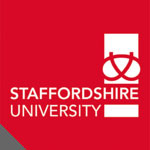The application of forensic archaeological methods for Holocaust studies in Ukraine
Cherkaska, Daria (2022) The application of forensic archaeological methods for Holocaust studies in Ukraine. Doctoral thesis, Staffordshire University.
|
Text
Cherkaska thesis final.pdf - Submitted Version Available under License All Rights Reserved. Download (24MB) | Preview |
|
|
Text (EThOS Agreement)
EThOS-Deposit-Agreement Cherkaska.doc - Other Restricted to Repository staff only Available under License All Rights Reserved. Download (135kB) | Request a copy |
Abstract or description
The examination of genocide sites, including those related to the Holocaust, is not a terra incognita in the 21st century. Forensic and archaeological investigations of mass graves and other sites connected to these events have developed significantly, particularly over the last 40 years. Forensic archaeology is widely accepted as this sub-discipline that can be defined as the application of archaeological theory and methods to the resolution of medico-legal and humanitarian issues.
However, these approaches are not commonly applied in Ukraine, and forensic archaeology is not considered a separate discipline. Likewise, in the past seven decades, archaeological investigations have not played an important role in Holocaust studies in Ukraine. Instead, research has had a tendency to focus on reviewing historical documents or oral history sources rather than physical evidence. Current Ukrainian legislation does not have guidelines for such expertise, and excavations of wartime burials are not done by professionals but by representatives of so-called search organisations (poshukovtsi). These are mostly volunteer organisations that focus on searching for and exhuming missing soldiers and their further identification in former Soviet countries such as Russia, Ukraine, and Belarus. The absence of investigation reports and an adequate level of professional skills make this practice inappropriate for Holocaust sites. Therefore, this thesis aims: (1) to discuss the potential of forensic archaeological approaches for the identification and investigation of Holocaust sites in Ukraine, (2) to analyse Ukrainian legislation and current practice in order to understand why and how forensic archaeological methods are not used to widely employed for Holocaust sites (2) to demonstrate how archaeological and forensic archaeological data could enrich knowledge about the Holocaust of the East.
In many cases, there is only fragmented data available concerning the means of the killing of the Jewish population, Romas, Soviet Pows and many other groups during the Holocaust era and their burial places. The first attempts to investigate specific sites have only taken place in the past 70 years since these dramatic events. Often there was no commemoration of many of these places in the post-war years, which means that the primary task of a researcher in most cases is to identify the specific location of killing and burial sites.
Furthermore, forensic archaeology is constantly developing, and this evolution has altered not only current practice but also its aims, objectives, scope, and definition. In order to understand these changes, the most common scenarios for applying archaeological approaches in Ukraine were discussed in this thesis. In addition, the benefits of more comprehensive applications of forensic archaeological methods are becoming more evident due to the ongoing war in Ukraine and the permanently increasing level of war crimes committed by Russians there.
| Item Type: | Thesis (Doctoral) |
|---|---|
| Faculty: | School of Law, Policing and Forensics > Forensic Sciences and Policing |
| Depositing User: | Library STORE team |
| Date Deposited: | 02 Apr 2024 12:40 |
| Last Modified: | 02 Apr 2024 12:40 |
| URI: | https://eprints.staffs.ac.uk/id/eprint/8187 |
Actions (login required)
 |
View Item |

 Lists
Lists Lists
Lists






